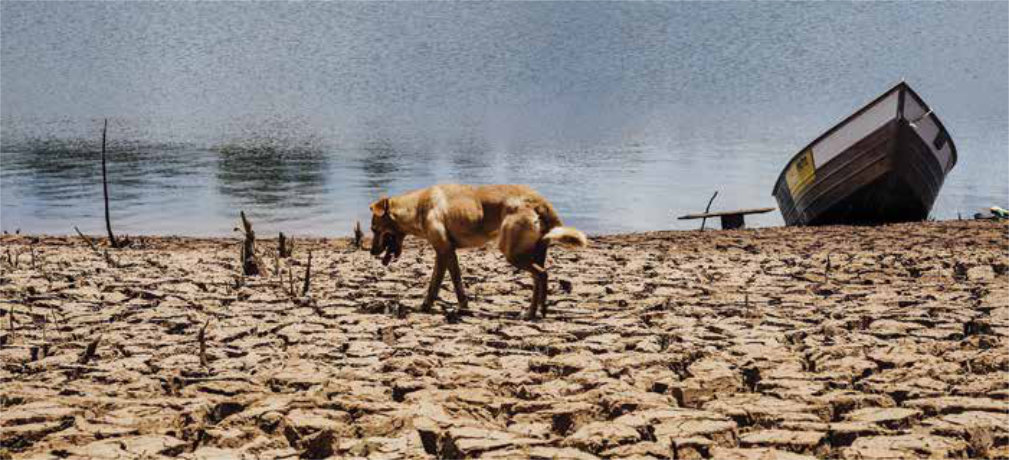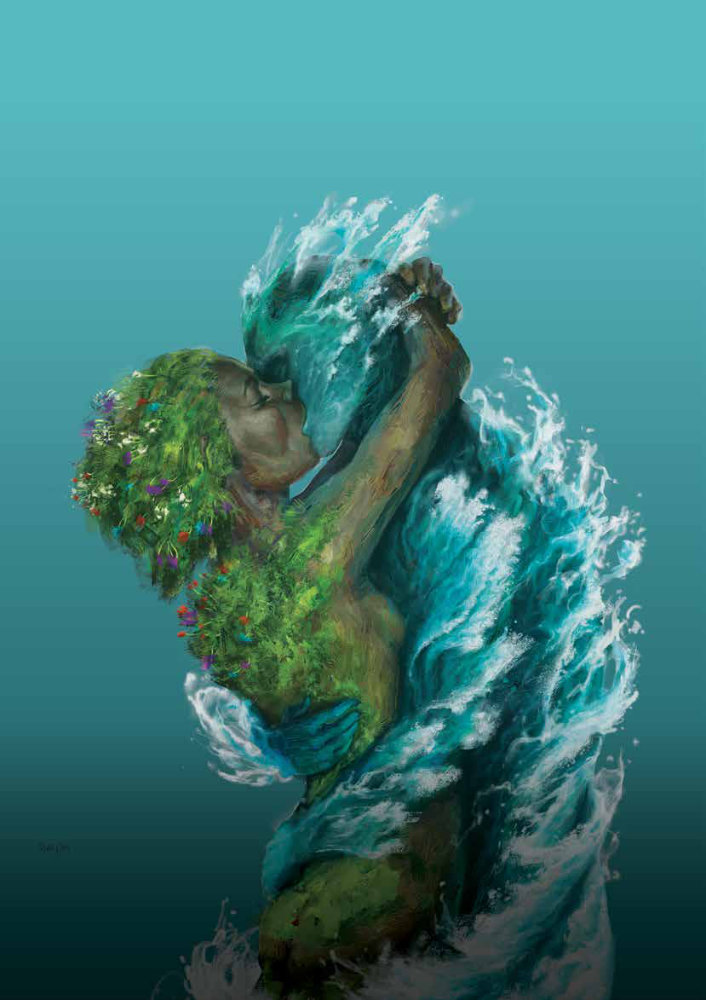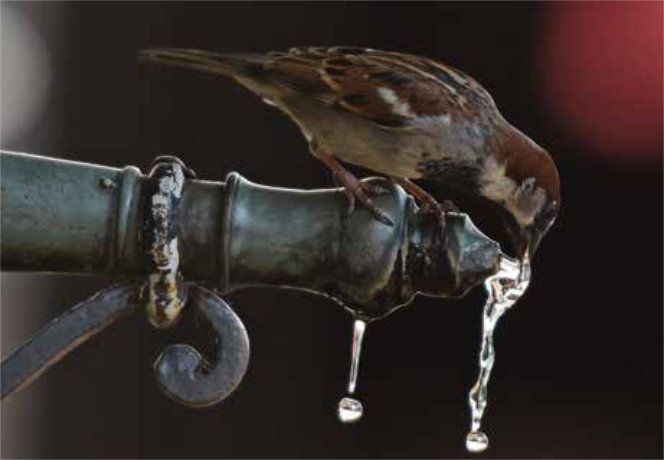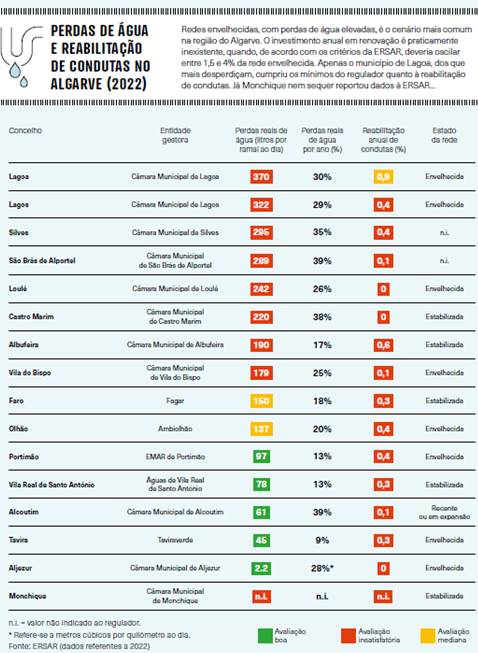Saturday, the 13th of July 2024.

It’s obvious that the Algarve and its inhabitants are faced with a serious problem. Until now, everyone had assumed that the supply of water available on our planet was unlimited. Now, however, this misconception that all resources are unlimited for all sectors of the economy is being shattered. So, the solution that is being proposed is to desalinise sea water. Aren’t there any other solutions? A desalination plant must be regarded as a last resort.
The Algarve is going through difficult times. The legal battle being waged by more than 20 environmental and professional organisations against a safety study published by the Environment Agency (APA), which reports to the Ministry of the Environment, has only just begun. And it could be years before the court in Faro – or rather Lisbon – decides whether a seawater desalination plant can be built near Albufeira, or not. In the meantime, the citizens of the Algarve must be allowed to help themselves to water in other ways, because the prospect of living without enough water means that neither agriculture nor tourism can function, let alone guarantee the survival of the people who live in the 16 municipalities of the Algarve. So, what might a sustainable solution look like?
ECO123 has repeatedly reported on this issue and put the concepts of frugality and sustainability at the centre of economic activity. The water supply network is also dilapidated, and the holes need plugging. It wasn’t worth it. The authorities didn’t want to limit tourism or avoid planting hundreds of thousands of avocado trees in agricultural regions such as Silves and Lagos, where traditional trees such as fig, carob, almond and mulberry trees were being uprooted in order to plant monocultures in kilometre-long rows with the help of machines. Did our ancestors do everything wrong just because they weren’t after money, just because they knew that the Algarve was an arid region that needed sensitive decision-makers? Our ancestors knew how to manage water and the soil. They had learned these skills over generations.
There were always periods of drought, and so, at the beginning of the 20th century, green vegetation was created that could survive the dry summers with almost no water. We know this from the past: it rains a lot in the winter months and this water is the only reserve for the long summer months. That’s why we have to collect this rainwater, isn’t it? Whether or not the rainy season will continue in the future is written in the stars. Man-made climate change could also destroy the climate balance in this area. We already know enough about the chaos that exists with regard to rainfall, due to the floods in Albufeira and Monchique.
Those who have invested in tourism, building a hotel or opening a restaurant, investing in a car hire company or a bus company, didn’t expect their business to be unprofitable. But they didn’t do their maths taking Nature into account, and they didn’t do their homework well enough to realise that the Algarve can’t have enough water reserves for five to seven million tourists a year. Every year.
The laws of the market cannot be transferred to the laws of nature. Without water, everything is nothing. And you can’t drink money. That’s why you have to study Nature and know how it works. And every human intervention in Nature has to be carefully considered. Desalinising seawater is an energy-intensive activity and what do those responsible do with the salt if all they want is the water?
A wide range of environmental organisations, from Quercus to A Rocha and SPEA, have now joined together on the PAS platform in response to the Portuguese Environment Agency’s environmental impact study relating to the construction of the desalination plant.
End of story?
In its June newsletter, the DECO-PROteste consumer centre reports that the water supply network and pipeline system in the Algarve need a complete overhaul and constant maintenance. DECO-PROteste recently conducted an investigation in all 16 municipalities and discovered large-scale water losses due to leaks. It is unbelievable that this issue is not being discussed in the Algarve. The figures have been known for at least a year.
So that all consumers can have access to data from their local councils, DECO-Proteste has created a water bill simulator at www.deco.proteste.pt/sustentabilidade/fatura-agua, based on data from ERSAR (Water and Waste Services Regulatory Authority) reports.
This site, which is constantly updated, contains information on water tariffs per municipality, the organisations responsible for services, reductions in the social tariff, water losses and the extent of ageing and rehabilitation of the supply networks.
Water losses in the Algarve’s supply network are enormous. DECO speaks of 15 million cubic metres being lost (1 cubic metre corresponds to 1,000 litres of water). Six municipalities are at the forefront of this wastage: Loulé, Lagoa, Lagos, Silves, São Brás de Alportel and Castro Marim.
In 2022, more than 15 million cubic metres of drinking water were lost from the Algarve’s local distribution systems in this way, corresponding to 49% of the water billed to households that year. According to Carolina Barreiros, from DECO, this loss of water in 2022 would have been enough to meet 49 per cent of the needs of all the families in this region, which, as we know, is strongly characterised by tourism and where droughts are prolonged over time, frequently calling for a series of immediate austerity measures.
Building gutters on roofs and creating tanks into which water can flow in winter would be one possible solution: in other words, making full use of rainwater. No money would be made (Águas do Algarve, SA), but the independence of the local inhabitants would be guaranteed. Forestry and agricultural megaprojects that require intensive irrigation techniques should be banned by the Environment Agency. Invasive tree species, such as eucalyptus and acacia, which consume a lot of water should be eliminated and replaced with native tree species. So, save water, save water, and save water again. To conclude, I ask myself two questions: what is the point of a lengthy legal process and how much does it cost? Why don’t the environmental organisations and the government bureaucracy (APA) sit down together and find a sustainable common solution through constructive talks?
 Eco123 Revista da Economia e Ecologia
Eco123 Revista da Economia e Ecologia







